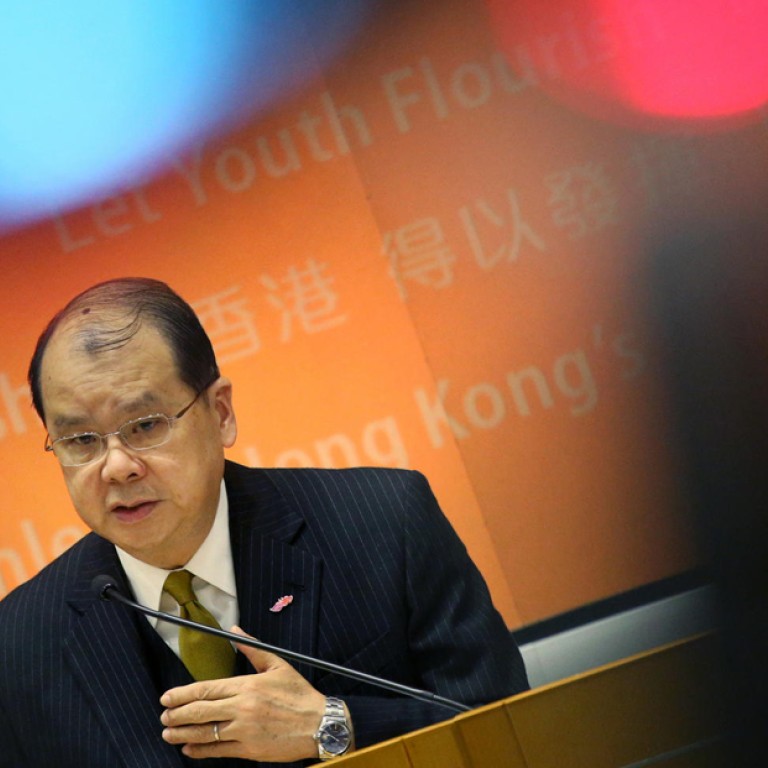
Update | 5,000 more subsidised elderly-care places to be provided by 2017
An extra 5,000 government-subsidised places at elderly-care homes will be provided within the term of this administration, the welfare chief says.
Secretary for Labour and Welfare Matthew Cheung Kin-chung pledged to provide 5,000 more of the coveted spaces, but declined to set an optimal waiting time for the roughly 30,000 applicants.
"The waiting time is long," Cheung admitted yesterday. "But we are trying to tackle the issue."
The current administration serves until 2017, when the next chief executive will be elected.
Cheung said another 7,000 places would be available after the redevelopment or expansion of 60 sites owned by 40 NGOs, but gave no timeline for when they would be ready.
Developers of 11 sites across the city would have to set aside space for elderly-care homes under a third plan, he said. The timetable would depend on the projects' building schedules.
Currently, applicants have to wait an average of 22 months to be accepted into an elderly-care home. For those who need more help on a day-to-day basis, the average wait for a nursing home is more than three years.
Cheung said the government had invited the Elderly Commission to draw up a long-term plan for dealing with the city's greying population.
"The plan will deal with issues like long-term planning and approach to elderly care, service standards, performance pledges, and optimum waiting times [for different services]," he said.
But social work sector lawmaker Peter Cheung Kwok-che said the plan seemed to be no more than a review of current services, not the comprehensive plan his sector was hoping for.
Crucial topics like a universal retirement pension scheme and reform of the Mandatory Provident Fund were also omitted, he said. "It was disappointing that the government focused on the nuts and bolts but failed to give a fuller, bigger picture."
The report is expected to be ready in two years. In the meantime, Cheung said, elderly and disabled people could expect improvements to existing schemes.
"We will enhance community care to take the pressure off institutional care," he said.
A HK$2 transport concession will be extended to disabled children below the age of 12 within the first half of the year. The concession will cover green minibus routes by 2015.
A voucher scheme for elderly people paying for services in their communities will be improved. The government is also considering giving an allowance to family members caring for their elderly relatives, Cheung said.
For disabled people, three pilot programmes under the Community Care Fund will be incorporated into the government's regular subsidies, which include a pre-school rehabilitation services subsidy for children with special needs.
